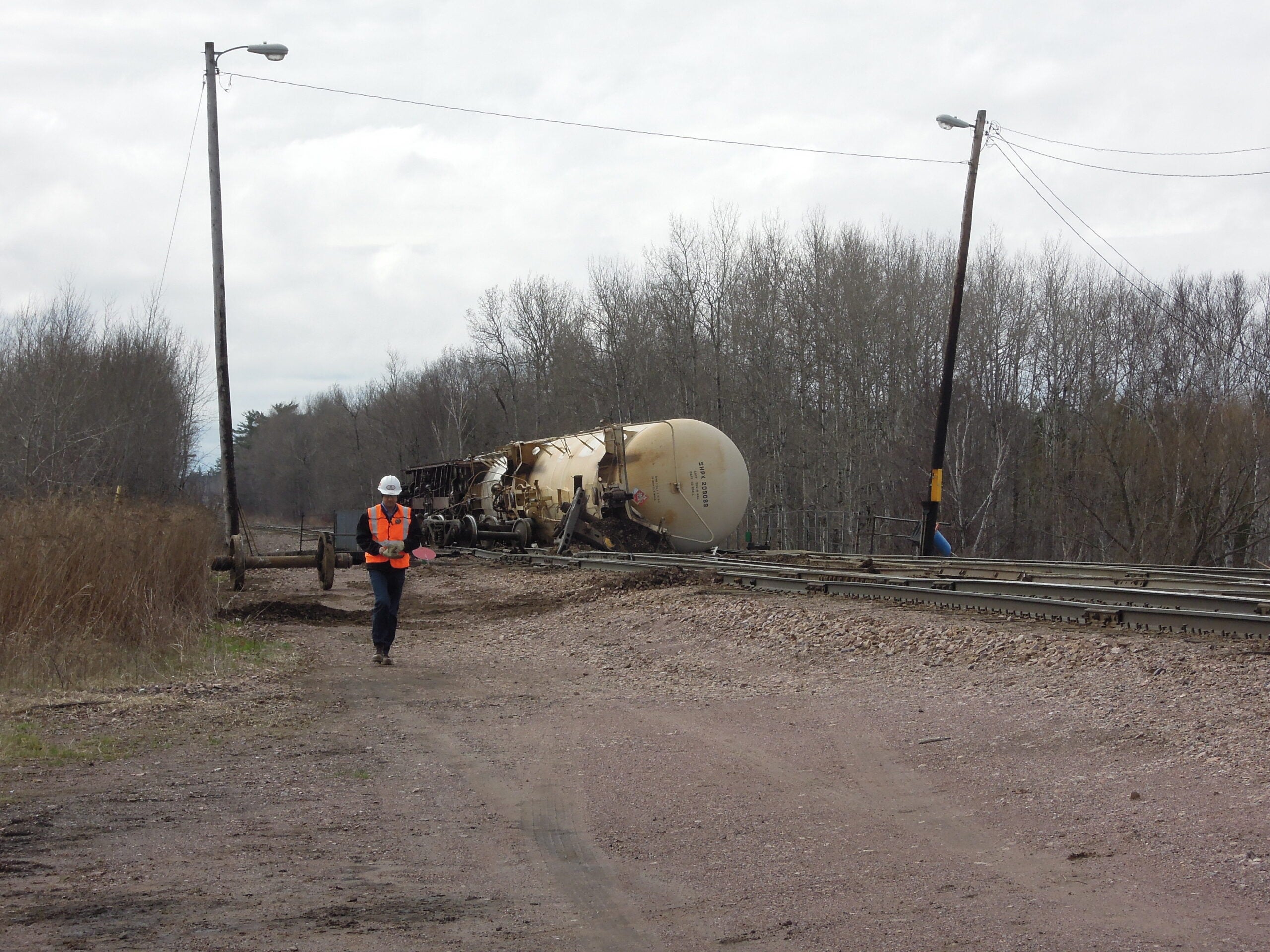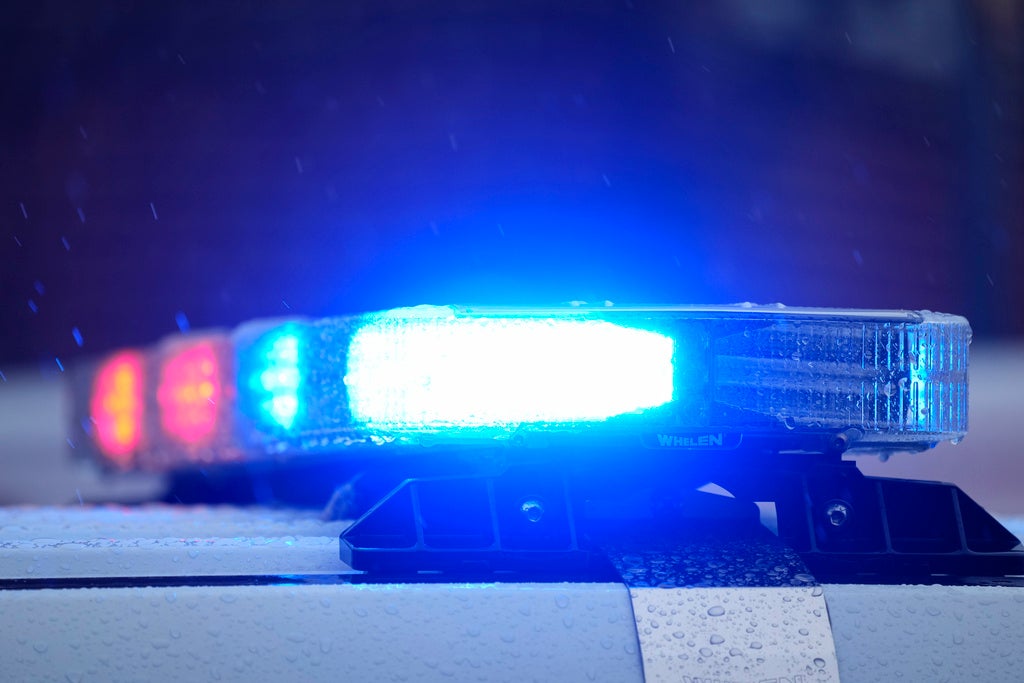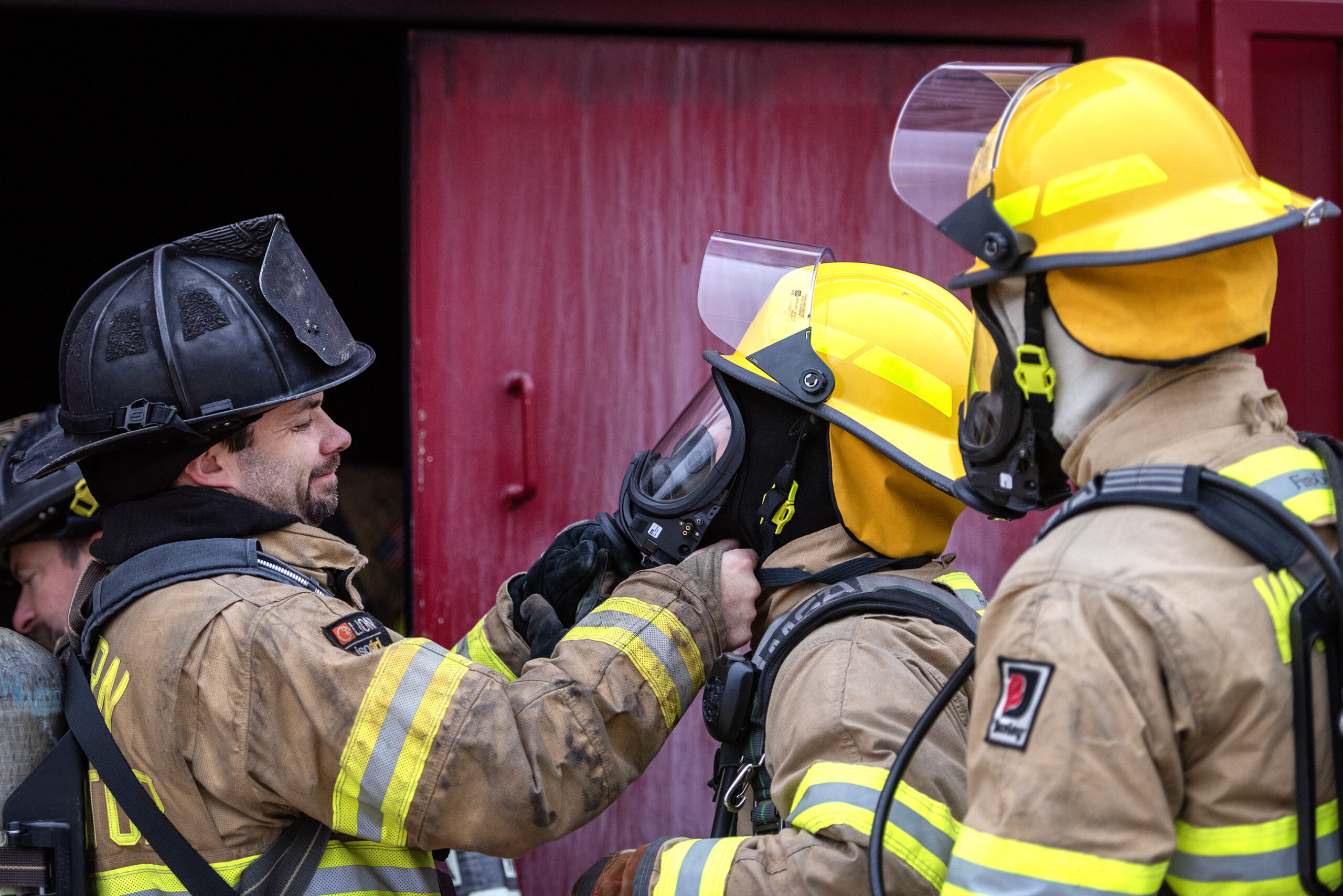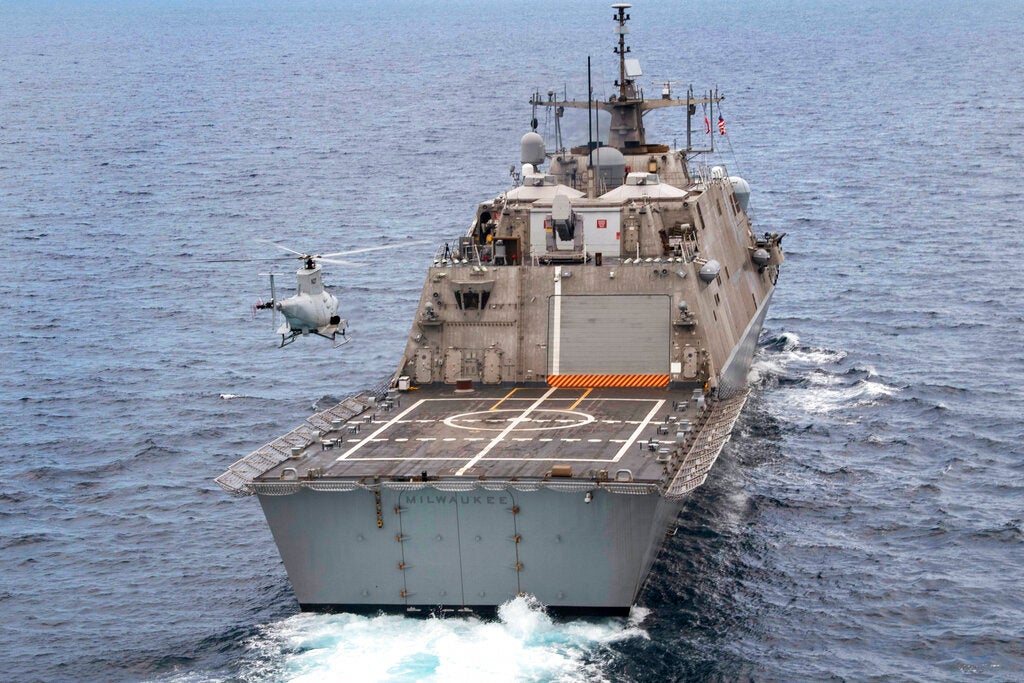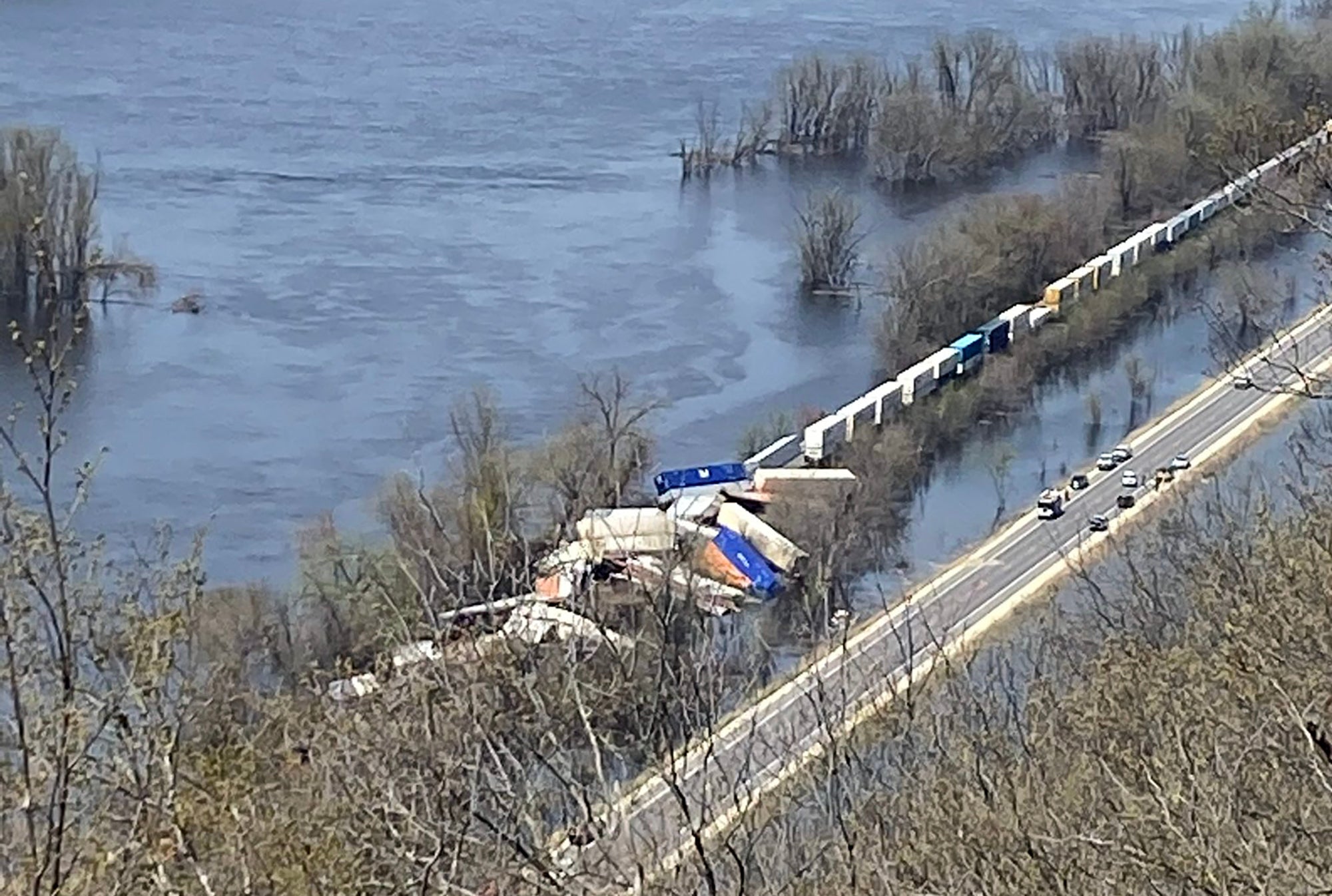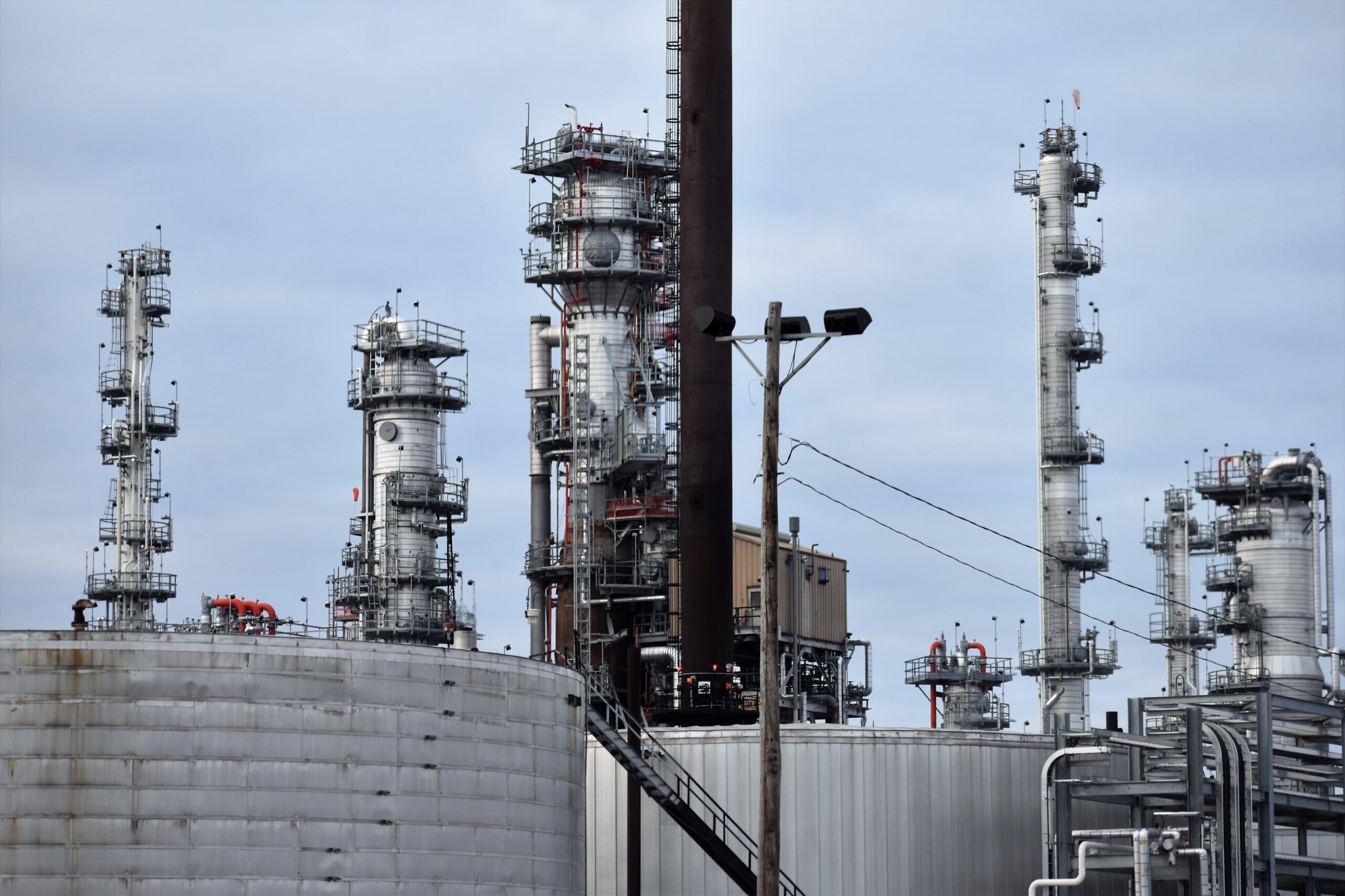A train derailed in Superior’s east end neighborhood Monday evening. Some rail cars were carrying hazardous liquids, but no spills or injuries occurred.
Superior Fire Battalion Chief Erik Sutton said firefighters responded to a call around 10:30 p.m. Three rail cars came off the tracks as they were coming into Union Pacific’s Itasca Rail Yard. Sutton said it was the best-case scenario they could hope for with a train derailment.
“Where the cars derailed there’s a creek – Bear Creek – that goes out into the bay, which with the 3 inches of rain we’ve gotten over the last couple days was running as high as it is ever,” said Sutton. “If there had been a significant release, it would’ve gotten into the creek right away and then would’ve been out in the bay in very short order. We would’ve had a really hard time getting in front of that.”
Stay informed on the latest news
Sign up for WPR’s email newsletter.
Sutton said two of the rail cars were each carrying close to 30,000 gallons of hexene, which is a flammable liquid similar to gasoline that’s used in plastic production.
Calli Hite, director of corporate relations and media for Union Pacific, said the cause of the derailment is still under investigation. But, she said the tank cars did their job.
“Luckily this occurred at a low speed,” she said.
Hite said the tank cars that derailed were DOT-111As. Last May, the U.S. Department of Transportation introduced a new rule requiring all DOT-111 tank cars to be retrofitted within the next two to seven years to enhance rail safety when transporting hazardous materials. Tank cars carrying the most dangerous liquids, such as crude oil, have to be replaced by May 1, 2018. Those transporting flammable liquids like hexene must be retrofitted by May 1, 2023.
The tank cars are owned by rail car companies or shippers – not the railroads. Hite said they’re required to ship products under a common carrier obligation.
“We’re not actually involved in deciding and telling our customers you have to put this commodity into this type of car,” she said.
Hite added that safety is Union Pacific’s number one priority and that they hope to prevent similar incidents by determining the cause of the derailment. In the meantime, the two tank cars with hexene are being lifted back onto the rail and rolled into the yard. They will then be loaded into another container for transport by either rail or truck.
Union Pacific reported 37 derailments nationwide last year, according to the Federal Railroad Administration.
Wisconsin Public Radio, © Copyright 2025, Board of Regents of the University of Wisconsin System and Wisconsin Educational Communications Board.
